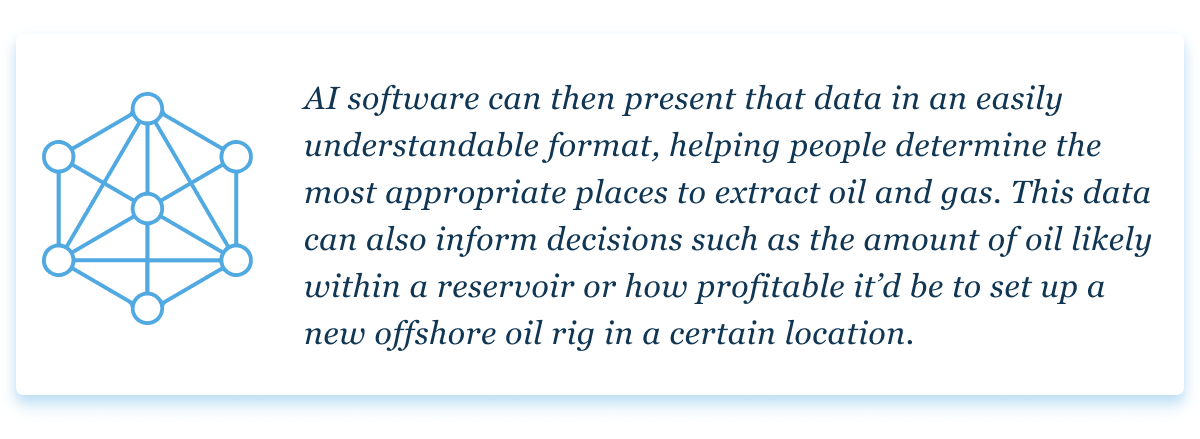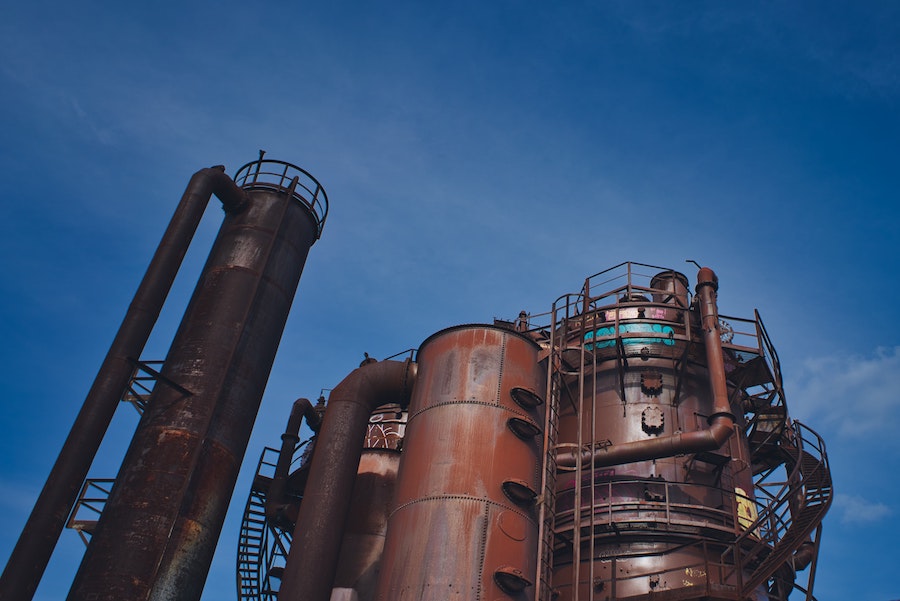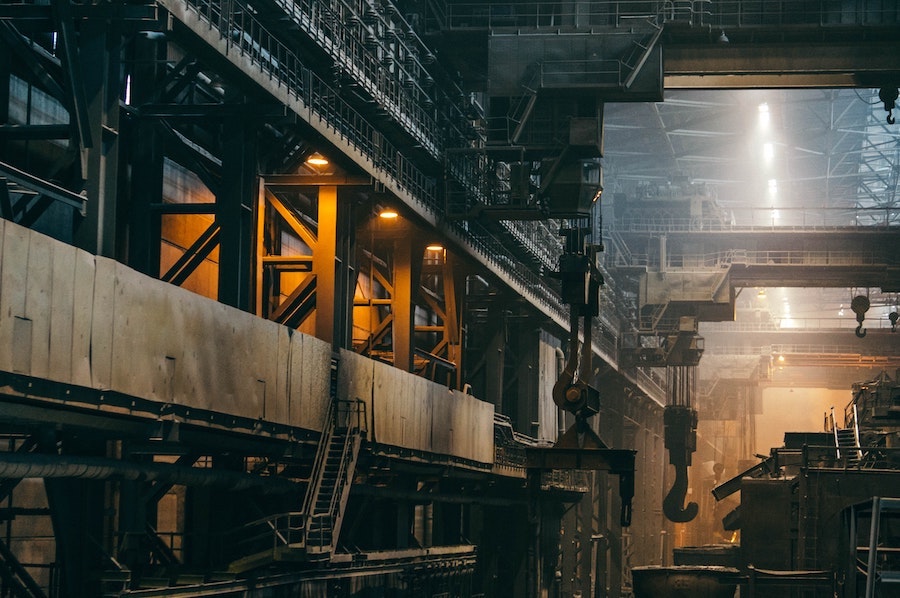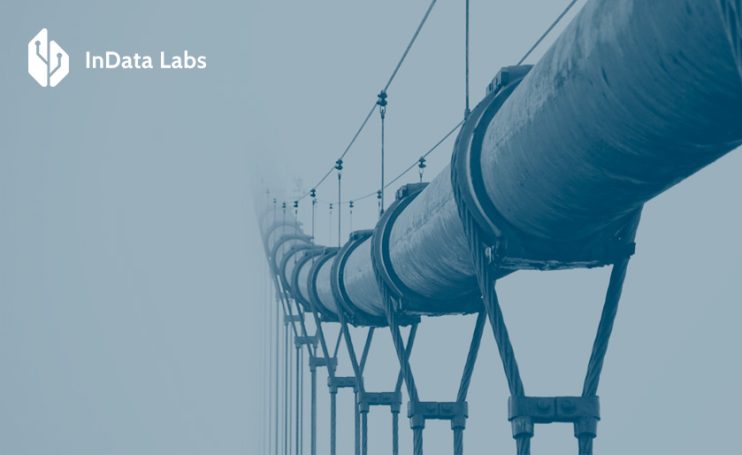Artificial intelligence (AI) greatly impacts numerous industries, including the oil and gas sector. AI applications in oil and gas can improve operational efficiency, reduce the likelihood of accidents and more.
Here are 15 fascinating ways people use AI oil and gas applications to improve how their businesses run.
Accelerating the discovery of natural gas and crude oil
Finding the best places to extract natural gas and crude oil is a labor and time-intensive process.
Fortunately, artificial intelligence tools improve their performance as the amount of data used increases. Oil and gas artificial intelligence applications can gather information about an area’s geology, geophysics and other specifics.

Detecting oil well and pipeline leaks
Leaks from oil wells and pipelines happen much more frequently than people outside of oil and gas companies may expect.

That’s why leak detection is an AI application gas industry professionals and related experts are particularly interested in pursuing. These applications can reduce false positives and are ideal for monitoring pipelines and oil wells in remote areas. Those locations usually don’t have humans present all the time.
However, people can get data in real time from AI tools, allowing them to spot problems sooner. That could reduce the lost resources or even prevent loss.
Reducing maintenance costs
Many applications of AI in oil and gas center on helping users reduce costs and avoid unwanted outcomes. One of the ways they do that is through predictive maintenance. It involves placing connected sensors on oil and gas equipment and deploying algorithms that learn what constitutes normal behavior. AI can then flag abnormal characteristics.
People may also use Big data analytics with predictive maintenance to track trends over time and prevent unplanned downtimes. Doing that could tell them the average life span of specific components based on usage.
Then, plant managers could replace parts before they fail. Maintenance-based AI applications in oil and gas can fundamentally change how people handle the upkeep of critical equipment by helping them become more proactive.

Source: Unsplash
Cleaning oil spills
Prompt responses to oil spills are essential for minimizing environmental damage and mitigating resource losses. Experts use various methods to tackle oil spills, depending on if they happen at sea or on the shore.
Chemical dispersion and skimming are two options for removing oil from the water surface. Once the oil reaches the land, cleaning crews use everything from industrial vacuum trucks to special sponges to soak it up.
However, an emerging option is to use AI-powered robots to assist with the efforts. Scientists are interested in using the machines as swarms, making dozens or more robots work towards a shared goal.
This application of AI in oil and gas industry tasks could reduce the number of people needed to clean up after an oil spill. It could also get the job done more efficiently, limiting the adverse effects.
Improving plant safety
Working in the oil and gas industry means accepting inherent hazards and following the correct procedures.
However, things go wrong even when employees consistently remain conscientious, aware of their surroundings and alert to potential problems. Choosing appropriate ways to use AI in oil and gas industry companies can improve safety by enhancing visibility.

Source: Unsplash
For example, deploying an AI predictive maintenance solution could prevent explosions, fires, toxic emissions and other issues that could put people at risk due to poor upkeep.
Additionally, some oil and gas workers receive wearables that gather information in real time and alert them to dangers they’d otherwise not notice until it’s too late. AI-powered robots can also support risk reduction by doing some of the hazardous tasks normally given to humans.
Managing quality control needs
Quality control shortcomings can be highly problematic for companies in the gas and oil sector, particularly if people only discover those issues relatively late in a project’s workflow.

For example, the technology can detect cracks in various materials, including metal. Using AI in oil and gas this way lets people verify products such as vessels for the energy sector meet minimum standards and will not fail at critical points.
Some companies also use computer vision to supplement the visual checks humans do. Adding strategic steps to a quality control process with human input and artificial intelligence is an excellent way to promote company resilience and bolster its reputation.
Enhancing worker training
Preparing employees for the oil and gas industry means ensuring they have the right workforce education to be adequately equipped for their roles. Artificial intelligence applications in oil and gas industry education can make employee training more personalized by detecting which topics a person should review or know well.

Source: Unsplash
Providing the right educational content with AI applications can also lead to more-empowered employees. Then, organizations can reduce costs and improve job retention, among other benefits.
An AI software application for oil industry workers could give customized feedback, helping people stay motivated and take pride in the learning experience.
Streamlining operations
People often combine data science with artificial intelligence to find opportunities for continuous improvement. Together, Big data platforms and artificial intelligence can find bottlenecks, unnecessary expenditures and time-consuming processes.
Imagine an AI software application for gas industry employees that allows leaders to see activity across worldwide facilities. If it works in the cloud and on smartphones or tablets, people can keep tabs on operations even if they’re nowhere near physical sites.
Besides improving how individual facilities operate, leaders can use AI to ensure each plant follows requirements.
Raising decision-making confidence
Running a gas or oil company can be daunting at times. People must assess various factors and determine the best steps to take to increase profits and marketplace competitiveness while minimizing all unwanted outcomes.
Fortunately, the AI applications in oil and gas companies can ensure people have the information to make appropriate choices under pressure.

Source: Unsplash
The digital twin is one application of artificial intelligence that can help people make the right choices in challenging circumstances.
Digital twins are computerized versions of real-life assets. They allow people to see the effects of specific changes before approving them. That might mean determining where to place a new piece of equipment or even assessing the layout of an entire oil plant before production begins.
Strengthening cybersecurity
Cybersecurity experts warn that the oil and gas industry is a prime target for online criminals. That’s why many leaders approach AI development specialists to learn about ways to build their cyber defenses. Such applications of artificial intelligence in oil and gas industry enterprises enable screening networks for signs of unusual activity.
Many such efforts rely on a branch of AI called machine learning (ML). It involves building and using algorithms that work similarly to how humans learn. Such examples of AI and ML in oil and gas industry use cases detect potential network intrusion events. They often automatically categorize them for humans to review.
People can also embark on a Big data business transformation by using specialized tools to monitor cybersecurity trends.
Tracking sustainability efforts
Artificial intelligence use cases in oil and gas can help leaders operate more sustainably. This sector is like most others in that national and state governments have tasked it with gradually reducing its emissions to meet published targets.

Source: Unsplash
Many corporate leaders have made AI and machine learning part of their digital transformation strategies, knowing that doing so could mean taking a significant step toward better sustainability.

Handling inspections
Any application of AI in oil and gas industry workflows should ideally connect to several overarching company goals. It’s then easier to justify the associated investments of hiring a machine learning consulting firm, deploying the solution and setting aside the time for employees to learn to use it.
Using AI to inspect equipment or infrastructure within the oil and gas industry is one excellent area to consider. For example, AI-powered robots can often go places humans can’t, increasing the likelihood of finding flaws that would otherwise get overlooked.
Answering queries
AI applications in oil and gas industry settings can also extend to chatbots made for workers or customers. Many people are so accustomed to communicating by text that they’d prefer doing that to picking up the phone.
People can program AI software to recognize and respond to customers or employees’ most common questions.
In many cases, the chatbots handle the entire conversation, giving users the answers they need within seconds. Leaders at oil and gas companies can also set aside time for analyzing data to identify what’s going well or needs improvement from a customer service perspective.

Source: Unsplash
Reducing manual tasks
Even the most conscientious workers often make mistakes while engaging in manual tasks. That could happen due to anything from carelessness to calculation errors. However, a well-built application of artificial intelligence in oil and gas industry responsibilities could minimize mistakes.
For example, artificial intelligence in oil rig robots can collect information about equipment and the environment.
Humans would still need to review it, but the gathering aspect can happen automatically with help from AI. Artificial intelligence and machine learning can also eliminate manual calculations about oil and gas industry trends, ranging from prices to production levels.
Achieving better communications outcomes
Many oil and gas companies have locations across the globe. People must know how, when and what to communicate to stakeholders while managing such a gigantic business presence. Artificial intelligence can help make those critical choices.
While using AI applications, oil industry communications professionals might rely on smart tools to check for spelling and grammar errors or ensure they use the best words to distribute the intended message.

Source: Unsplash
These professionals may also approach Big data development teams to discuss using options like sentiment analysis. It can determine how the public responds to specific communications efforts or which industry-related issues they often discuss on social media platforms. Understanding what matters to people is vital for communicating effectively with them.
Artificial intelligence in oil and gas is gaining momentum
The oil and gas industry was not an early adopter of artificial intelligence.
However, more of the sector’s leaders realize things must change. Many of them choose AI to facilitate that progress. That might mean building a machine learning model to predict outcomes before approving an oil rig deployment. It could also involve using AI to reshape maintenance processes, safety procedures and employee training.
Industry leaders are most likely to get the best results by identifying challenges. They’re then in an excellent position to assess how AI could overcome those issues and how to take the next steps.
Author bio
April Miller is a senior writer with more than 3 years of experience writing on AI and ML topics.
AI technology for oil and gas projects
Planning to develop an innovative solution for your oil company? Get a consultation from an AI consultant.



